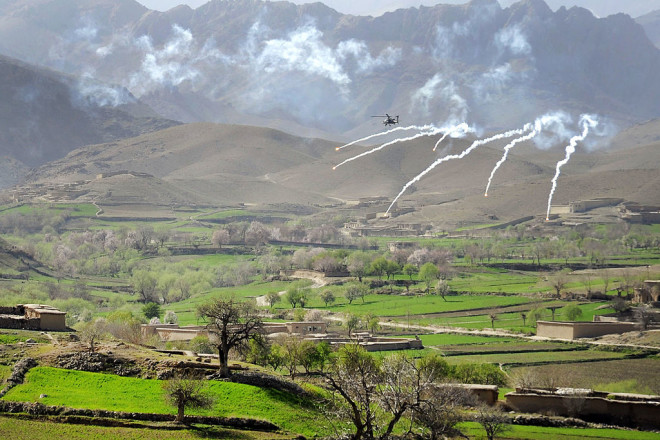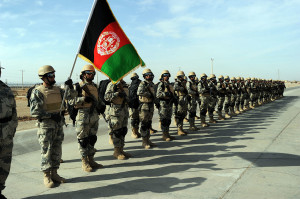Too Fast, Too Soon: Afghanistan After Withdrawal

The United States invaded Afghanistan in the fall of 2001 to kill Osama Bin Laden and to overthrow the Taliban regime, because it was hosting al-Qaeda elements. This was the U.S. objective. Now, bin Laden is dead—thanks to the U.S. Navy Seals—and the Taliban movement has been greatly weakened.
Freedom was a foreign concept in the Taliban years, and it is no exaggeration to characterize the Taliban as one of the most repressive totalitarian regimes of the 20th century. After the U.S. invasion, Afghan social and economic conditions changed for the better. In addition to achieving its military objectives, the American presence in Afghanistan allowed for needed improvements in the lives of many people. Before 2001, ordinary citizens in Afghanistan were in constant danger of physical assault by the Taliban religious police.Men could be attacked and beaten with sticks for shaving their beards. Punishments for women were severe for even the most trivial “offenses.” Before 2001, Afghan girls were not permitted to attend school. Women were forbidden to work outside their homes. If a woman wished to leave the house for any purpose, they were required to be accompanied by a male escort. In addition, all forms of entertainment were outlawed, including television, radio and music of any kind. By any standard, life under the Taliban was brutal and oppressive.

Today, according to UNICEF, 3 million girls attend school in Afghanistan and women enjoy the legal freedom to work in the public sphere. Now, thanks to NATO assistance, Afghan security forces have been trained and equipped. This security establishment will play an essential role in maintaining stability within the country after the U.S. withdrawal. The Afghan National Army is taking responsibility for the country’s security in the Southern and Eastern provinces and the Afghan National Police is developing into a professional and capable force. However, Afghanistan still depends on the assistance of the United States and its NATO allies to avoid a resurgence of the Taliban and prevent the country from disintegrating into civil war.
President Obama’s plan is to withdraw all U.S. forces by the end of 2014 from Afghanistan. The American economic recession and the decision of NATO countries to pull out of Afghanistan prompted the Obama administration plan a withdrawal as well. In addition to domestic economic troubles and the influence of allies, some policy makers are using the so-called “Green on Blue” attacks—attacks by Afghan forces on supposedly allied U.S. troops—as a further justification for leaving Afghanistan. However, General John Allen, the top US commander in Afghanistan, has written that these attacks should not discourage the United States from pressing forward with training Afghan forces to provide stability for the country. Gen. Allen rightly points out that with the combined efforts of the Afghan security forces and the coalition forces, these attacks will end. The Afghan people are tired of war and they are tired of the Taliban, who represent nothing but violence and oppression.
Ironically, the Green on Blue attacks further illustrate the weakness of the Taliban and their desperation to remain relevant. The Taliban are isolated to such an extent that they have no capability of living and fighting among the population. As a result, infiltration of military and police units is the only effective means of resisting the Western presence.
Of course, the U.S. must eventually leave Afghanistan and leave Afghans in charge of their own security. However, 2014 is too soon for such a departure, because Afghanistan is not yet ready to assume full responsibility for maintaining the security of the country and providing for its citizens’ basic needs . Great progress is being made; with the development of institutions that are based on the rule of law, society will continue to improve. South Korea and Taiwan struggled for many years before ridding themselves of authoritarian regimes and launching political and economic reforms. Many high-ranking U.S. military officers are optimistic about the future of Afghanistan. The military leadership should be given a chance to “finish the job” because they believe victory is within reach.
The potential consequences of the United States prematurely leaving Afghanistan are grave. The country could descend into yet another civil war, costing tens of thousands of Afghan lives. It is possible that the Taliban could return to power and derail years of political, social, and economic development. Neither of these scenarios will benefit the United States. Not only would such a high-profile failure taint its already tarnished image as a great power, but would also embolden its enemies around the world.